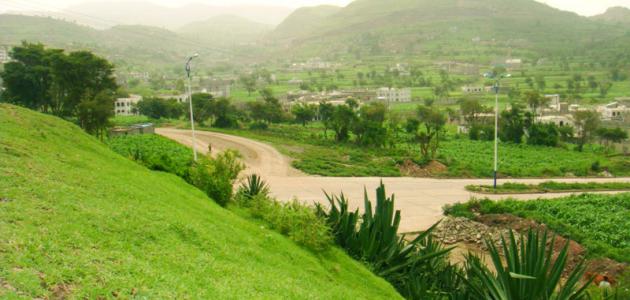Ibb

Ibb City
It is one of the cities of Yemen that is administratively affiliated to the federal military territory, with an area of 5,552 km, and is called The Green Brigade, because it is considered one of the most beautiful provinces of Yemen.
It was considered one of the cities where the ancient historical kingdoms were established as the State of Hamir, founded in 115 BC by King The Redan al-Hamri, the Salhi state founded by King Ali bin Mohammed al-Salhi, and the Ismaili state that emerged at the end of the 9th century AD and continued to the eleventh century AD, a state attributed to Imam Muhammad bin Ismail.
Name
Once called al-Thaja, historians attribute that Ep is a Persian name and means heavy rains and others say it is expected from August, called in Yemen as Suhail, which symbolizes the abundance of rain.
Geography And Topography
Geographically located in the south-western part of the Arabian Peninsula, specifically in the center of the Republic of Yemen, bordered to the north side of Dhamar province, bordered by the eastern side of al-Bayda governorate and the province of Al-Dalla, and from the western side of Hodeidah governorate, and bordered from the southern side of Taiz province, while its climate is characterized by a moderate climate throughout the months of the year, with a rainfall rate of 1000 mm per year.
Ibb al-Khadra contains a variety of terrains, such as the mountain highlands of The Yerem Mountains, the Bani Muslim Mountains, the Maris Mountains, the Adein Mountains, the Bani Malik Mountains, Jabal Balad al-Shahari, the Green Mountains, the Kahlan Mountains, Jabal al-Mujadhar, Jabal Al-Qarad, farms, plains and deep valleys of Wadi al-Dour, Wadi Metim, Wadi Zubayd, Wadi Anna and Wadi Bana.
Population And Economy
According to 2004 statistics, the city has a population of 2,131.861 million, its population growth rate is 2.47% per year, the population speaks Arabic, which is the official language in Yemen, and the majority of its population is muslim.
Its economy depends on both the industrial and agricultural sectors, where the city is famous for its clay minerals, thermal bricks, cement, zeo-lite and vegetable and grain cultivation.
Tourism
The city contains many tourist, historical, archaeological and religious places, including: Fort al-Akra located in the Directorate of Jabala, The Solid Baths located in the Directorate of Al-Kufr, the Dhofar Museum located south of the Directorate of Yerem, Beit Al-Ashoul, the water wells, the Palace of Redan, the Oil Contemporaries, and the Queen's Mosque. The historic sakia located in the Directorate of Jabla, the Fort of Jabal Hab, located in the Directorate of Badan, the Hammamat Habran located in the isolation of Beni Saif al-Aly, the castle and fort of Samara, the palace of Dar al-Ezz, the baths of the dialogue of the son of a, the suspended villages, and the baths of the archeologists.
General Informations
-
The Al-Shaar Directorate is one of its smallest directorates, and al-Qafr directorate is one of its largest.
-
Historic cities owned by the city:
- The city of Jableh, which was the capital of the Salhia state during the reign of Queen Arwa Bint Ahmed, is also famous for its coffee trees.
- The city of Dhofar, which was the capital of the Donkey state.